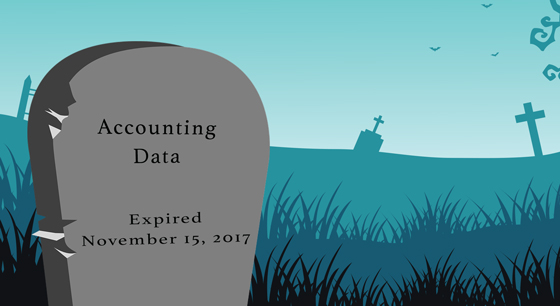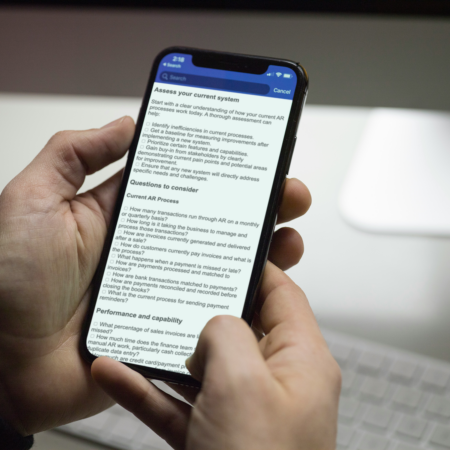
We all know that groceries such as milk and produce have expiration dates, but so does the accounting data that guides your business. While it is important to keep a record of your transactions and bookkeeping, accounting data still has a shelf life. You wouldn’t use two-month-old milk for your breakfast cereal because by then it’s spoiled and you’ll get sick. In parallel, basing a major decision on outdated finances could cause serious repercussions. That data has outlived its relevance.

An Accounting Graveyard
One issue companies face is constantly maintaining a current accounting system. If a system is populated only by long-passed historical accounting details, the data is just too outdated to impact current business decisions. When this happens, businesses are basically investing in an accounting graveyard that’s simply uninformative and irrelevant.
Like human beings, financial information is in a constant state of change. Expenses and revenue cycles alike can see rapid shifts within months or even just weeks. It’s vital for companies to remain up-to-date on these trends in order to effectively pilot business strategies and set goals. However, it’s very easy to lose track of financial details and create an accounting system that only looks backward.
You Thrive or Dive Based on Your Accounting System
While there are lots of accounting software packages out there, very few of them are truly innovative, using outdated or inflexible functionalities and systems. Truly valuable accounting software needs to be able to handle new trends while keeping up with your company’s growth and development.
In today’s fast-moving business environment, it’s crucial that an accounting system accurately draws financial data from mission-critical applications that manage key operations. These include sales, contracting, and service and operations programs that all drive your company and use money and resources. Accounting tools also require data from your bank, payment processor, and payroll provider. Depending on your business you may also need updated or transactional data such as currency exchange or sales tax.
In addition to the accounting features offered in a given software, scalability and automation are decisive features that serve to keep accounts current and reliable. One dangerous trap a business owner can fall into is the mindset that any accounting software will be adequate without understanding the need for a system that will actually grow with the company.
Invest in Your Data Through a Scalable Accounting System
As a company grows, so does its software requirements. In order to remain competitive in sales and operations, it becomes necessary to invest in new tools and more staff to achieve greater value. This means more financial data must be monitored at a successive rate in order for it to be effective in making business decisions. Therefore, having an up-to-date accounting system in-line with your other solutions is essential.
Key areas like marketing and sales are all connected to each other, as well as to accounting. Upgrading or investing in one core area of your business without doing the same for accounting would leave your organization ill-equipped to handle new work and services. When a company retains an ineffective, siloed accounting system, it’ll eventually have to rely on manual updates from all of its supporting applications to maintain current information. In the midst of this tediousness, essential financial data is apt to fall through the system cracks.
Much of this can be avoided by consistently monitoring your accounts, but to do this effectively you need a scalable accounting application. A solution that emphasizes automation and customization is the best way to counter the risks of an accounting graveyard because it takes most of the manual entry out of the equation. Customization will allow you to fully control your financial management. Automating key processes will streamline your workflow and keep your records updated. Overall, these qualities will serve to develop a system that perfectly fits your business throughout its lifecycle.
See Accounting Seed in action
Get a close-up view of how accounting on Salesforce can eliminate the need for costly integrations—and silos of mismatched information—by sharing the same database as your CRM.


